Just Before My Mom Died, She Said 6 Words That Changed My Life — And Made Me A Better Mother
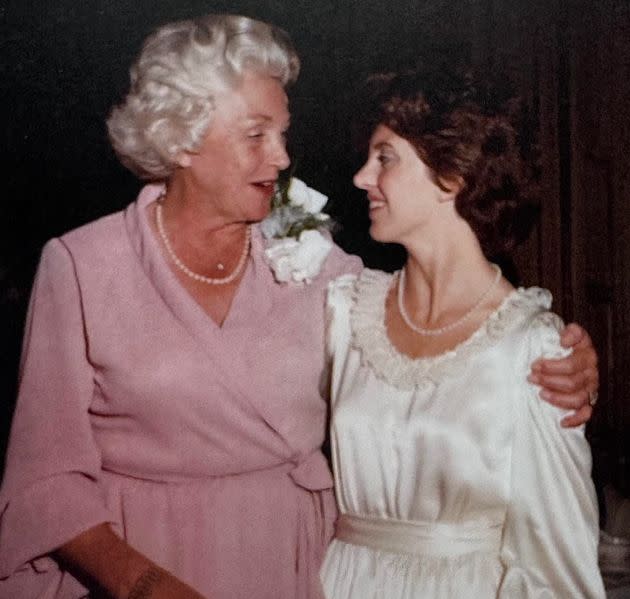
“Your granddaughter needs to go to a hospital in Nashville for her depression,” I told my 95-year-old mother. “She’ll be away a few months.”
My mother sat in her easy chair in stony silence. After my father died at age 83, Mom moved to a retirement facility near us in Asheville, North Carolina. My glance around her tiny assisted-living home room landed on the bookshelf where she’d arranged photos of her seven grandchildren, including my daughter — all of them smiling for the camera. Her perfect family.
“You mean she won’t be home for Christmas?” she asked.
“I’m afraid not. But the doctors think this is best.”
“You’re making a mistake,” she told me.
I couldn’t bring myself to explain. Mom never asked for details, and I was relieved not to talk with her about it again. I knew she wouldn’t understand that my lovely 19-year-old daughter — the grandchild she adored and got such a kick out of — had been addicted to heroin in college and was now struggling to recover her life in rehab.
I desperately wanted to turn to my mother for support but didn’t trust that I would get it. Mom was raised to believe a woman’s role was to be the glue for her family. “Keep your figure to keep your husband,” she’d tell me. “And always stay in control of your children.” She was already upset that I had a job while raising my children, rather than following her lead as a stay-at-home mother. It seemed I was always doing something wrong in her eyes, so I assumed she would blame me for my daughter’s misery. To skirt around her criticism, my visits with Mom became shorter and more task-oriented.
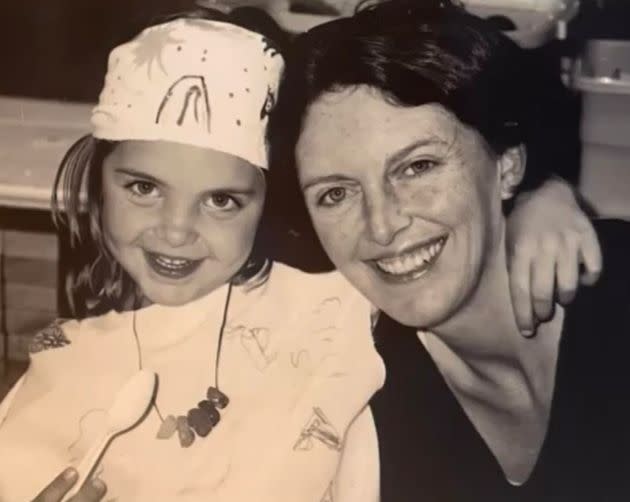
Women have long been pressured to create good families by being perfect mothers. They’re often shamed for doing too much or too little for their kids. To avoid this judgment, I drove my two children to every practice, performance, game and match, took time off work to volunteer in their classes, helped with homework and made sure our family sat down to home-cooked meals five nights a week. And then, when they got older, I tried to appropriately let go, as was recommended in my parenting self-help books.
Still, all my efforts to excel as a mother didn’t prevent my daughter from becoming deeply depressed. When she tried to ease her pain with alcohol in high school and drugs in college, I felt like I’d failed her. I needed help but was ashamed to admit it. It was 2014. The opioid crisis was on the rise in our country, but heroin use was not acknowledged yet as something that happened on college campuses or to “good families.”
After my daughter had been in rehab for a month, Mom had what the doctors called a mini stroke. There would probably be more, they told me. I prepared myself for the fact that my vibrant, complicated mother might soon die. To my surprise, her deteriorating health made her softer — and me more forgiving.
I began checking in on her several times a week. When I’d get up to leave, we often hugged a long time, rubbing each other’s backs while whispering “I love you.” We never talked about what was really going on with my daughter, but I could tell my mother sensed there was more to the story than I’d provided.
My daughter was making progress with recovery, and I was hopeful she’d soon be coming home. Then I got a call from the rehab facility in Nashville.
“Hello. This is the nurse. Everything’s fine,” she said. The staff are trained to begin conversations this way. But if everything is fine, I wondered, why would a nurse be calling?
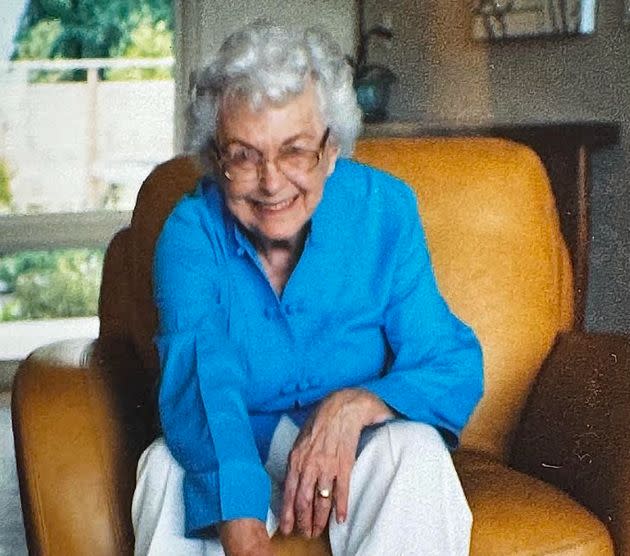
“Your daughter’s had an accident. Her blue jeans caught fire and she has a third-degree burn on her calf, but she’s OK. She’s been to the hospital and is resting here in the clinic now.”
I stared at the phone, wondering how quickly I could jump in the car and drive five hours to Nashville.
The nurse handed the phone to my daughter.
“Hi, Mom. I’m fine but really tired, so don’t come now. But I may need a skin graft.”
After we talked for a while, I hung up the phone and went to visit my mother. Mom was weak and often tired, taking more naps than usual. And she had been having more mini strokes.
“I have some bad news,” I said to my mother the next time I saw her. “Your granddaughter burned her leg in an accident and now needs an operation. She will be in the hospital in Nashville for several days. I’ll be driving there tomorrow, but I don’t want to leave you now.”
“Of course, you must be with her,” she said.
“Promise you won’t go anywhere until I get back?” I joked. We both understood her time on Earth was limited. She smiled and nodded.
“Now listen,” she said, and looked me square in the face. I was waiting to hear her disapproval or advice or concern about my daughter. Instead, she said six words that changed my life: “You’re going to get through this.”
It was the first time my mother had ever expressed her belief in me without adding some little quip or comment about ways I could still improve. She had always given me love, but not unconditional trust.
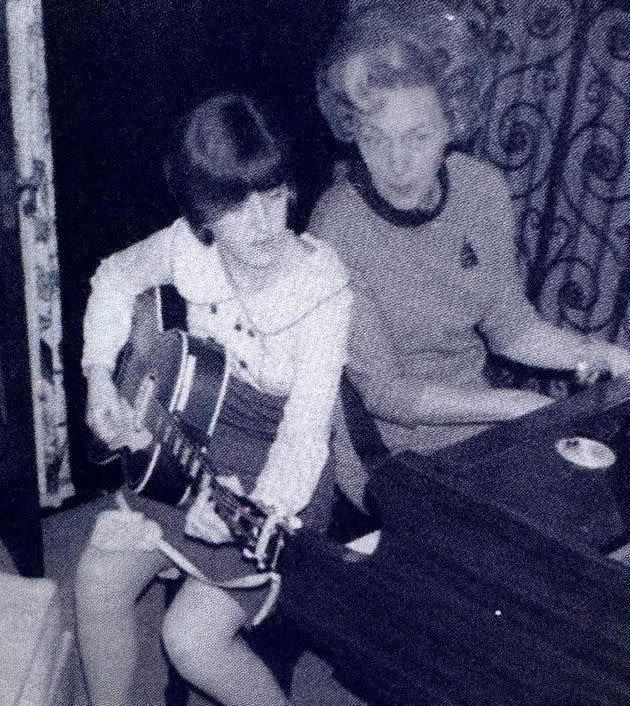
As I left her room and walked down the stairs to the parking lot, I felt lighter than I had in years. My constant guilt and worrying about her, about my daughter, about myself seemed to evaporate in that moment. Despite the uncertainty that surrounded me, I suddenly felt confident and calm, rather than anxious or inept. I hadn’t realized how much I’d longed to hear those words from my mother all my life.
At the Vanderbilt burn unit, I stayed with my daughter for five days. In a way, it was a precious time for us. I spent hours listening to her talk about her friends at rehab, her hopes for the future, the things she was learning about recovery. I painted her toenails bright green, and we ate sandwiches I bought from a nearby deli to avoid the hospital food. I also openly shared myself with her in a way I’d never done before. I told her I was sorry for not understanding the pain she’d been in when she was younger and how I was sad that my mother was nearing the end of her life. At one point, I even let my daughter hug me while I cried.
The day before I was to leave the hospital and return home, a nurse brought in pain pills and waited by the bed with a cup of water. I watched my daughter pretend to swallow the pills and then hide them next to her hip, away from the nurse.
“Oh, look! You must have dropped this,” I said, and handed her the pills.
“Thanks, Mom. You’re right.”
She was quick. She swallowed the pills and smiled. The nurse looked confused but finally left the room.
“What was that about?” I asked.
“I thought if I saved up three doses then I could get high.”
“Seriously?” I said.
“I’m sorry, Mom.”
My daughter sighed and looked out the window.
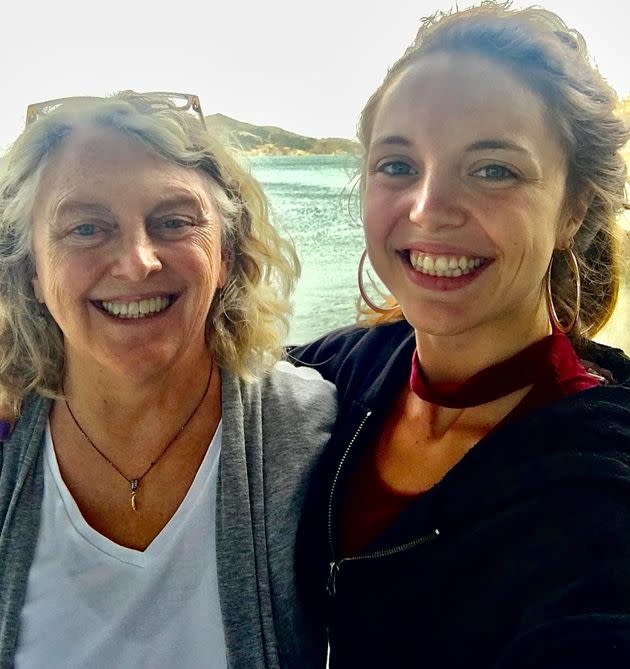
We sat together on her bed in silence. I couldn’t believe the excruciating leg pain she was willing to endure just to get high. I knew then I couldn’t help her recover, and I couldn’t insist that she get better just so I could relax. It would be a long, tough journey for her. I tried to think about what she needed to hear from me, what in the world I could possibly say. I tried to imagine what I would want to hear.
When I finally stood up to leave, I didn’t offer my usual pep talk or tell her she had to work harder to stay clean and sober. I stopped trying to be a perfect mother. I stopped trying to control things. I didn’t give her any advice at all. Instead, I held her hand and said six words: “You’re going to get through this.”
While I was in Nashville, my mother suffered a major stroke. Once home, I immediately went to the retirement home to see her. She was lying in bed, paralyzed on one side and only able to utter a word or two. I held her hand and said, “I love you.” She nodded her head. Four days later, she died.
At first, when my mother said, “You’re going to get through this,” I thought she was just talking about my challenges raising a troubled teen. After she died, I realized she also meant I was going to get through losing a mother and all the other struggles that come with being human.
I’ve since tried to give my children the gift of trust — the belief I have in their ability to handle whatever comes up in their lives. Sometimes, I relapse into old patterns of fear. But thanks to my mother, I now have a mantra to practice: You’re going to get through this.
Ann Batchelder is the author of “Craving Spring: A Mother’s Quest, a Daughter’s Depression, and the Greek Myth that Brought Them Together.” She was editor of Fiberarts Magazine, guest curator for major contemporary exhibitions at the Asheville Art Museum, and Director of Special Events for the Brooklyn Academy of Music. Ann lives with her husband in Asheville, North Carolina. Her writing has been featured in several publications and podcasts. For more, visit www.annbatchelder.com.
Do you have a compelling personal story you’d like to see published on HuffPost? Find out what we’re looking for here and send us a pitch at pitch@huffpost.com.

